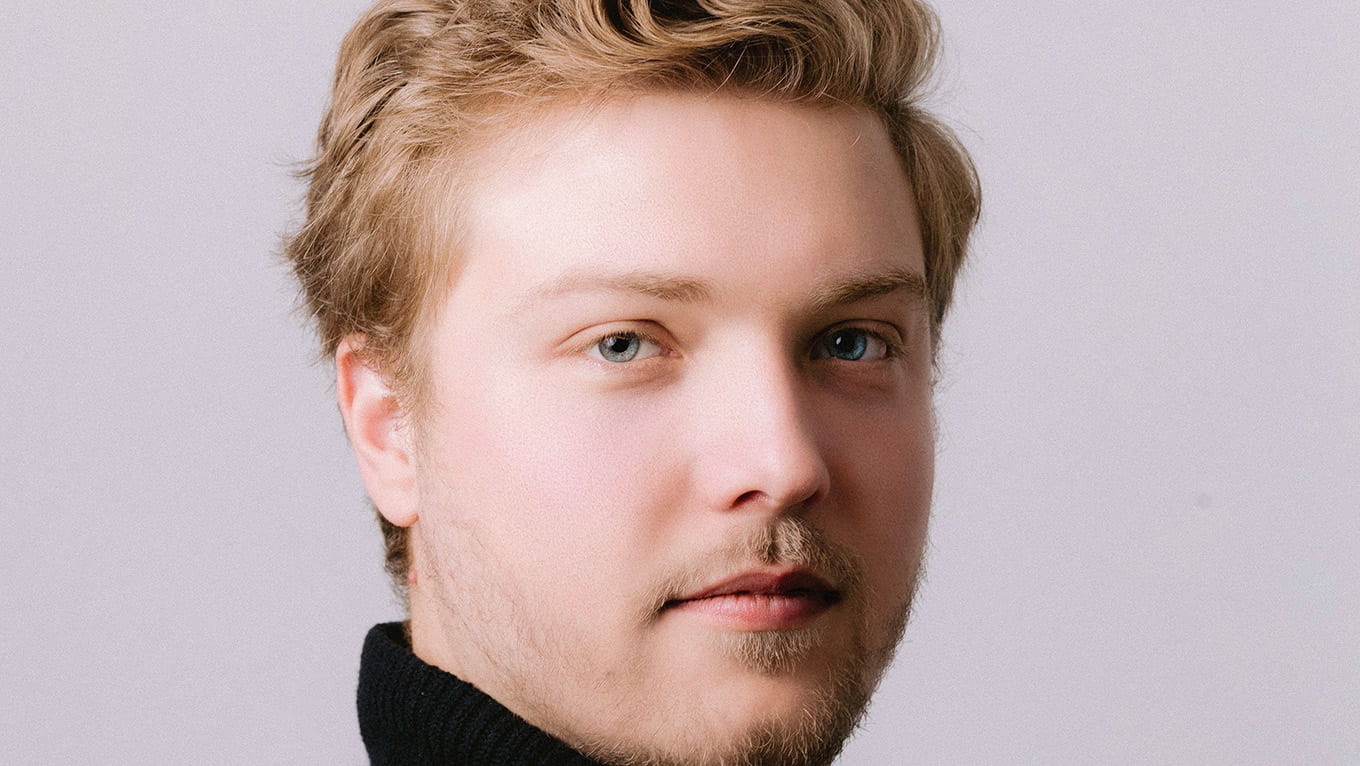What if we could completely eliminate scarcity from the world? For Baskin Engineering alumnus Pavle Jeremic, this question is not just a hypothetical. His startup, Aether Biomachines, is working to revolutionize how molecules are made, with hope that higher-throughput manufacturing can reduce and eventually eliminate competition for basic resources.
“It was abundantly clear to me that biology could solve the problem of scarcity,” Jeremic says. “It could create a future where industrial productivity is so high on the planet that it’s rare for humans not to have what they need.”
Jeremic has been interested in the problem of scarcity since he was a child. Both of his parents had emigrated from Yugoslavia right before war broke out in the country. He grew up comparing his relatively comfortable life in the United States to the war-torn regions of his parents’ homeland.
“In my early childhood, I had friends there who were living next to craters and going through bombing raids,” Jeremic says. “I became obsessed at a very early age with how to fix that problem… I am interested in ending suffering.”
One of the surest ways to reduce suffering, in Jeremic’s mind, was to eliminate resource scarcity, which he believes leads humans to commit many of the atrocities like the ones he witnessed in war-torn Yugoslavia. The solution, as he saw it, was in biological engineering.
“It was clear that nature could solve scarcity, so we needed to engineer nature.”
Both of Jeremic’s parents were engineers, and he showed an early interest in scientific research. He took a biotechnology class in high school and was so fascinated by one of the experiments that he approached a professor at UC Davis to ask if he could intern in his synthetic biology lab. The experience strengthened his conviction that biological engineering could solve the problem of scarcity, particularly if it could be automatized, and encouraged him to participate in more hands-on lab work when he came to UC Santa Cruz for college.
Leading the UC Santa Cruz iGEM Team
Jeremic engaged in a number of research opportunities as an undergraduate at UC Santa Cruz, but the one he was most interested in was co-captaining the school’s student-led International Genetically Engineered Machine (iGEM) team.
“I knew that I wanted to form a startup, and iGEM seemed like the best way to get some practice,” Jeremic explains. “Leading that team was one of my happiest moments at Santa Cruz… In a team like iGEM, unlike a class project or some theoretical exercise, you’re actually building something, and seeing it built is immensely satisfying.”
The iGEM research experience also allowed Jeremic to make close connections with colleagues. Two of the friends he participated in iGEM with, Hannah Meyers and Chase Armer, ended up helping him found Aether. Their idea for the company was to create a way to automatize the synthesis of biological materials and put machine learning to work on the very complex problem of engineering enzymes.
“Human beings are not well suited to engineer biology, but we’re well suited to build algorithms that can,” Jeremic explains. “When I founded Aether, the question was ‘what is the best way to generate the largest amount of data possible to use algorithms, to solve the problem for us?’”
As the three founders dove into developing the company straight out of college, they participated in a University of California accelerator, CITRIS Foundry, as well as various pitch competitions. Jeremic says that resources were crucial for helping his team build connections that have brought Aether to where it is today. One of the judges at a pitch competition at Santa Cruz became their first investor, and showed them how to ramp up their fundraising. In the first several years, Aether raised around twelve million dollars, and is currently about halfway through a campaign to raise another thirty to forty million.
Aether’s Progress
As the company grew, Meyers and Armer decided to branch off and engage in other ventures, but Jeremic remains committed to Aether as the company’s CEO. He says that one of his biggest challenges has been managing a twenty-person team of very diverse talents and keeping them focused as the company continues to grow and succeed.
According to Jeremic, Aether’s automated factory is currently the highest throughput system on the planet by almost two orders of magnitude. This has allowed Aether to generate data on an unprecedented scale. They have used this data to prove that they can build an algorithm that can predict what specific string of amino acids will produce an industrially useful enzyme to create synthetic substances, and are currently scaling up this process.
For young entrepreneurs who aim to follow in his path, Jeremic warns that it will not be easy. He has had to deal with many crises as the founder and CEO of Aether, but he says that having a strong network of people to challenge him helped him push himself to make changes and react quickly to new problems.
“The most valuable people you need to surround yourself with as an entrepreneur are the people who will push and prod you, because they will force you to consider things that you may not have considered,” Jeremic says. “That is the biggest advantage of pitch competitions in the Santa Cruz area or elsewhere, is finding mentors and angel investors who have gone through the process so many times and can help you build that internal barometer.”
– SHARE THIS STORY –
You May Also Be Interested In
-

QB3 biotech internships immerse Baskin Engineering undergrads in AgTech and health-tech startups
-

2025 Dean’s Awards highlight outstanding Baskin Engineering undergraduate research in AI, cybersecurity, biomedicine, and more
-

Inaugural Baskin Engineering Climate Week inspires climate action and innovation

